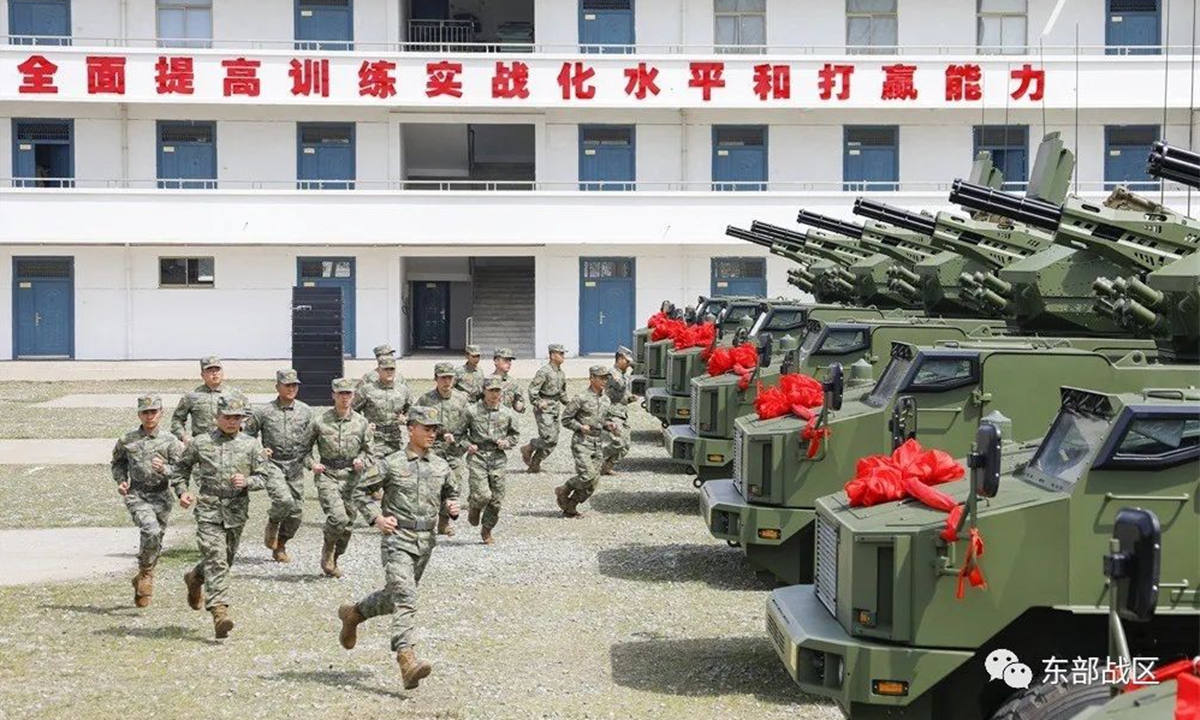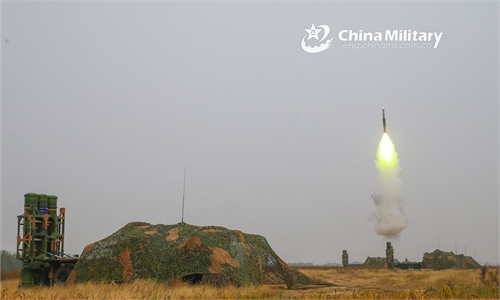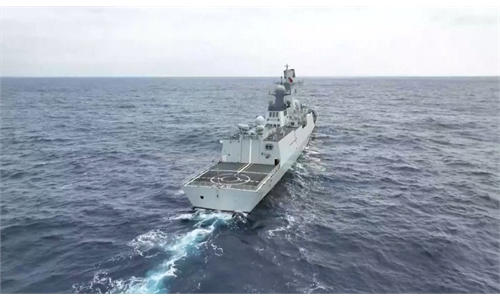PLA Army commissions new self-propelled anti-aircraft systems with drone threats in mind

Troops of an air defense brigade affiliated with the Chinese People's Liberation Army (PLA) 71st Group Army takes delivery of dozens of new self-propelled anti-aircraft systems earlier in April 2023. Photo: Screenshot of WeChat account of PLA Eastern Theater Command
The Chinese People's Liberation Army (PLA) Army has taken delivery of a batch of new self-propelled anti-aircraft systems that analysts said on Monday have drone threats in mind.
An air defense brigade affiliated with the PLA 71st Group Army recently held a commissioning ceremony for dozens of new combat vehicles, the PLA Eastern Theater Command said in a press release on Sunday.
Photos attached to the press release show that the newly delivered vehicles are a type of truck-mounted anti-aircraft system integrated with a rotary cannon, a set of missile launchers, a radar system and a set of smoke dischargers, all on a wheeled vehicle.
The press release did not provide further details, including the designation of the system.
This type of self-propelled anti-aircraft system, which is similar to a naval close-in weapon system but runs on land, has been observed in service with other PLA Army units since 2022, including a combined arms brigade affiliated with the 75th Group Army and the Xizang Military Command, according to official media reports.
Its rotary gun has six 25-milimeter-caliber barrels. Combined with the four FN-16/HY-6B air defense missiles on the turret, the system can cover an air defense radius of three to four kilometers against helicopters, cruise missiles, loitering munitions and low-flying drones, Shanghai-based news website eastday.com reported at the time.
Low-flying, slow and small targets like drones and loitering munitions have become one of the biggest threats in air defense in modern warfare, as demonstrated in the Ukraine crisis. Traditional medium- to long-range air defense systems often ignore such targets, and traditional interception methods are also too costly, observers said.
The new self-propelled anti-aircraft system can be used in mobile air defense, meaning that it can provide air defense to troops on the move rather than staying in a fixed position, Fu Qianshao, a Chinese military aviation expert, told the Global Times on Monday.
With special radar and sensors, it can target drones that are difficult to spot and come in large numbers or in a swarm, and choose to use a gun or missile based on the situation, Fu said.
Since such drones are inexpensive, using the less expensive gun is more reasonable than using the missiles, but the missiles provide versatility and cover more situations, the expert said.




